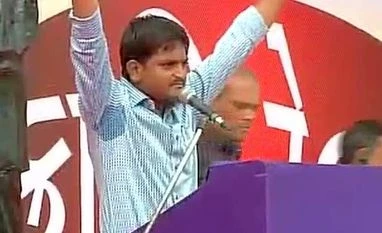The state has just had a tryst with violence, with the 22-year-old Patel leading an agitation across Gujarat. After violence gripped cities such as Ahmedabad, Rajkot and Surat, the Anandiben Patel-led government blocked mobile internet and SMS services in the state to prevent rumour mongering through SMSes, networking platforms such as WhatsApp and social media platforms such as Facebook. The ban was in place from August 25 to September 1.
ALSO READ: Wealthy, yet 'backward' in Gujarat
On Saturday, the state said another such ban, of 24 hours, would be put in place starting 12 am Saturday night in the Navsari district.
| STATE IN TURMOIL |
|
With more and more textile traders moving to internet-based instant messaging and social network applications for booking orders in hubs such as Surat, the recent week-long internet blockade led to a decline of at least 20 per cent in bookings. Devkishan Manghani, secretary general of the Federation of Surat Textile Traders Association, says textile traders are increasingly depending on the likes of WhatsApp and Facebook for booking orders and marketing their product designs on such platforms.
More, with buyers from states such as Kerala and Tamil Nadu enforcing internet-based IDs and password-encrypted systems for suppliers, several traders from Surat were hit. “Traders couldn’t ship their orders to buyers in these regions, as they couldn’t log into these systems on the internet,” Manghani said.
Gujarat exports 40-45 per cent of its textile production. The picture is clearer when one considers the fact that Surat alone produces three million metres of cloth a day.
Having burnt their fingers once, textile producers and traders are either reducing dependency on internet-based services or updating these from mobile data-based to optical fibre-based, which were functional during the week-long ban.
The small and medium enterprise hub of Rajkot, with an annual turnover of about Rs 1,000 crore, exports about 25 per cent of its production. Firms in this segment, too, found it tough to communicate with foreign clients during the ban.
Devanshu Gandhi, chairman of the Gujarat state council of the Confederation of Indian Industry, said these days, all businesses operated through the online route. As such, “exporters would have been the worst hit”, he said.
The internet ban hurt the banking sector, too. According to estimates, about 30 per cent of banking transactions are through online platforms. A senior bank executive said while the ban was in place, people had to shift to other modes of transaction, in some cases mobile banking or banking at branches. While the loss due to the ban hasn’t been officially quantified, insiders peg it at a few hundred crores.
On another front, individual taxpayers were a worried lot, as the ban coincided with the last few days of filing income tax returns. Sources said at least 30 per cent taxpayers could not complete their filing due to the internet ban. Following this, the Income Tax Department extended the date of filing of returns by a week to September 7.
Tales of citizens being left helpless abound. Anjali, a 24-year-old IT professional here, had a harrowing time trying to book a flight ticket to her hometown to attend a wedding in the family.
Others couldn’t carry out online transactions, not just because they found their internet data dongle devices blocked, but also as one-time passwords generated during most transactions weren’t available, as SMSes weren’t being delivered either.
With Hardik Patel blowing his war bugle again, Gujarat is left wondering whether the internet ban will return to haunt it. For now, however, the Navsari district administration has denied Patel permission to hold his march.
)